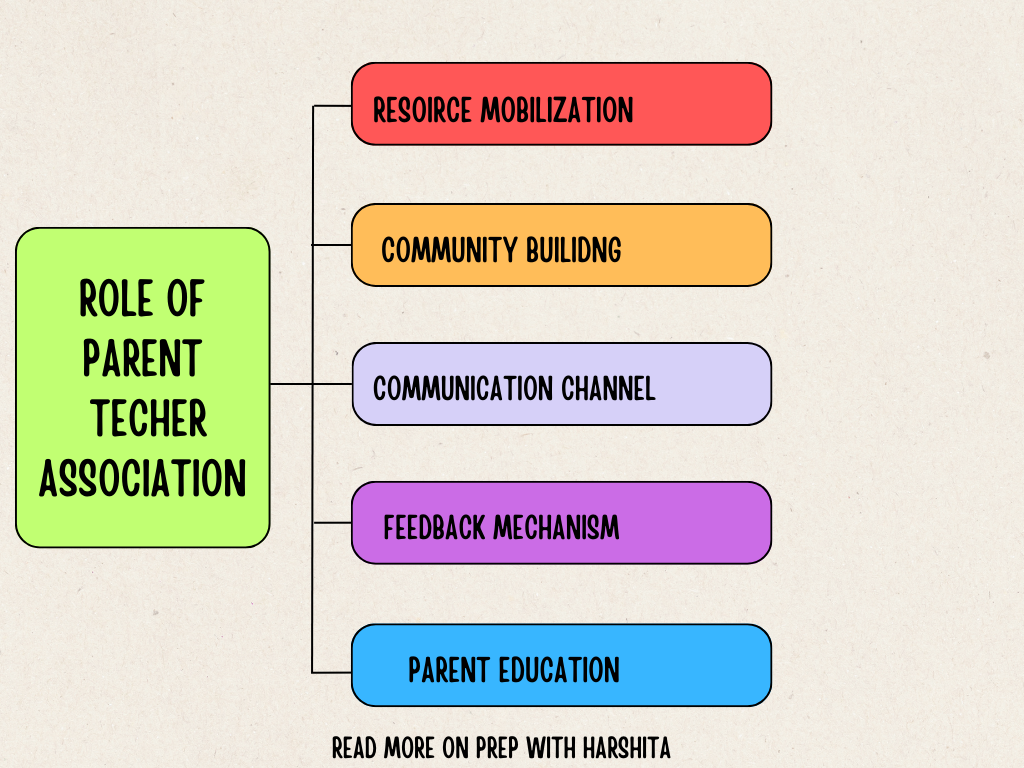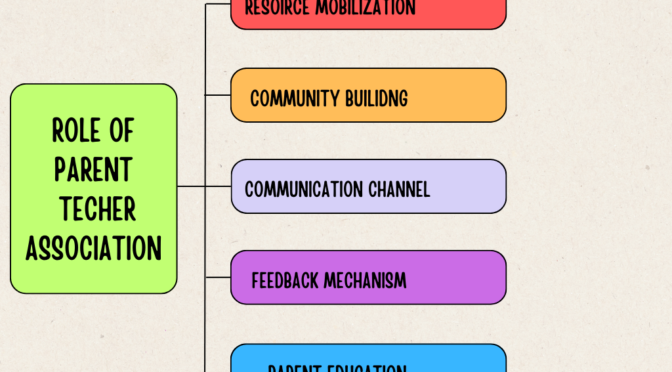Parent Teacher Associations (PTAs) play a significant role in the development and improvement of schools by fostering collaboration between parents and teachers. The involvement of parents in the educational process is crucial for creating a supportive and enriching learning environment.
Here are key roles that Parent Teacher Associations play in school development:
Community Building: PTAs contribute to building a sense of community within the school. By organizing events, meetings, and social activities, they create opportunities for parents, teachers, and students to connect and collaborate.
Also Read : Role of School Management Committee
Resource Mobilization: PTAs often engage in fundraising activities to provide additional resources for the school. These funds can support various initiatives, such as extracurricular activities, classroom supplies, technology upgrades, and infrastructure improvements.
Communication Channel: PTAs serve as a communication channel between parents and teachers. They facilitate open and transparent communication, ensuring that parents are informed about school activities, policies, and their child’s academic progress.
Collaboration on School Policies: PTAs collaborate with school administrators and teachers to provide input on school policies. This collaborative approach ensures that policies take into consideration the perspectives and needs of both parents and educators.
Parent Education: PTAs may organize workshops, seminars, or informational sessions for parents to enhance their understanding of educational practices, curriculum changes, and ways to support their children’s learning at home.
Involvement in Decision-Making: PTAs may have representation in school decision-making bodies, influencing decisions related to school policies, budget allocations, and other matters that impact the school community.
Also Visit : Prep with Harshita


